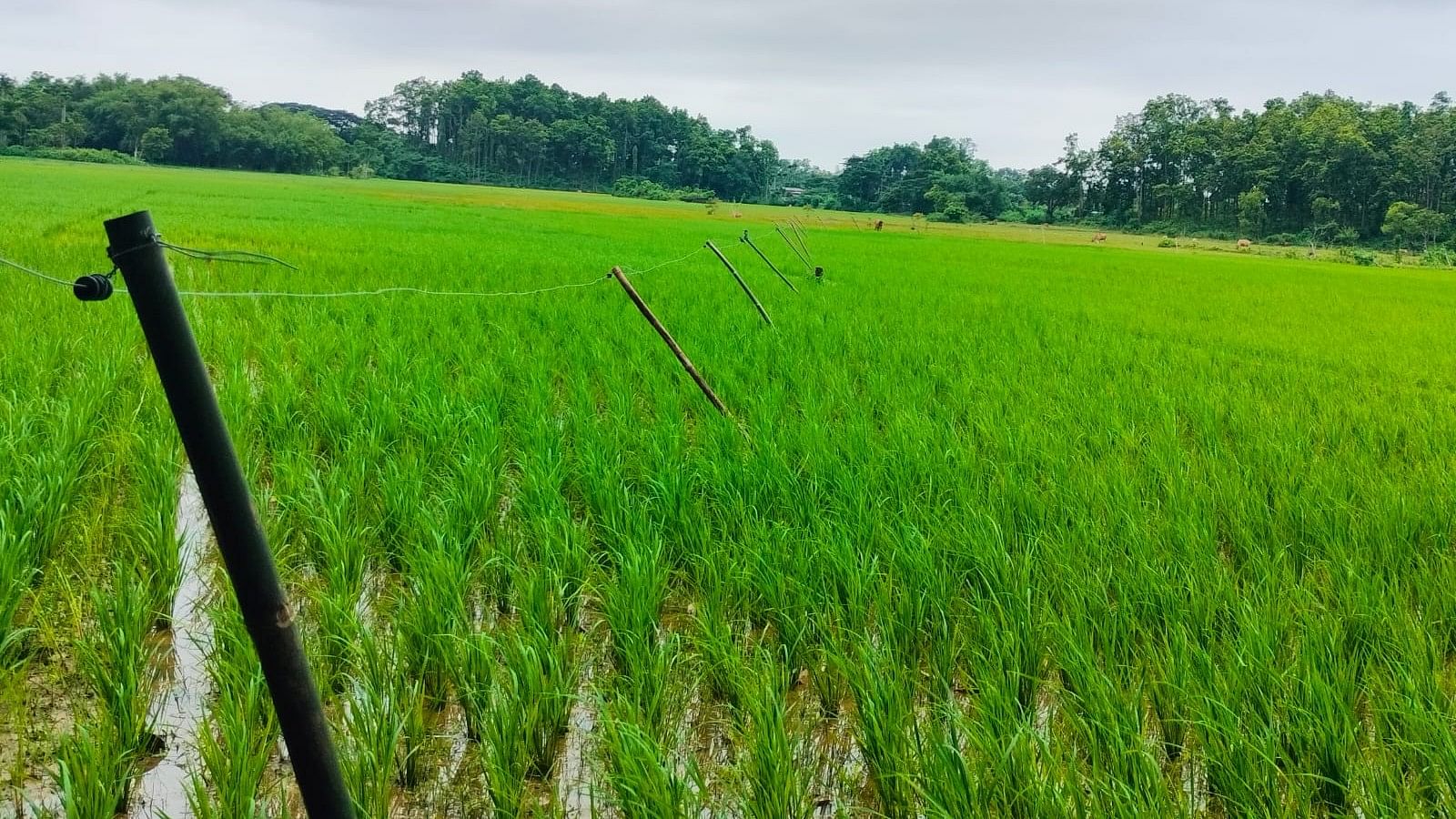
Solar fence for paddy farmers.
Credit: Aaranyak.
Guwahati: Sukleswar Boro had almost stopped cultivating paddy and kept his land vacant due to the long problem of depredation by wild elephants. That was before 2023 when farmers like him were provided with low cost solar fences at Gosaihat village in Assam's Kamrup district sharing a border with Meghalaya.
In the past two paddy seasons, the solar fence has not only acted as a barrier against wild elephants, many coming down the hills of Meghalaya, but also has come as a succor.
"Many farmers skipped paddy cultivation and kept their land vacant as the elephants would come to devour and destroy their crops. But the solar fence seems to have provided relief," Boro said.
The community of Gosaihat village situated near Maliata reserve of Palashbari Range Forest installed a low-cost seasonal solar fence in November 2023 to protect the vast crop field with the technical guidance of Aaranyak, a biodiversity conservation group here and WWF. The US Fish and Wildlife Service supported the Aaranyak initiative.
After the training on solar fences management and operation, a low-cost community-managed solar fence was installed on an experimental basis.
"The fence provided very good protection to the standing crop from wild elephant herds. As a result local farmers could harvest 90 per cent of the crop in the last season," said Aaranyak's solar fence installation expert, Anjan Baruah.
As the solar fence provided hope, the farmers led by Boro removed the entire fence including the solar fence machines and the solar panels and stored the same for the next year.
After having a very good result in the last harvesting season, the local farmers this year also installed a seasonal solar fence to guard the paddy crops in about 10 hectares.
Farmers like Bonapart Boro, Milon Boro, Bhubaneswar Boro, Jiten Boro, Dipen Boro, Kamal Das, Lal Mohan Das, Bhola Das, Bhaben Das, Dimpu Thakuria, Manoj Das and others came forward for installation of one km-long solar fence using bamboo posts in August.
“This year the farmers are expecting to harvest 100 per cent of the crops with the help of the seasonal solar fence. The farmers no longer bother about the crop damage by elephants outside the fence,” said Boro. The farmers have left some space to facilitate movement of wild elephants while installing the fence.
Boro said that the fence would be removed after harvesting the crop and stored properly for use in the next year as well.
Deaths and destruction due to depredation by wild elephants has become a serious issue in Assam, a state with second highest number of elephants (5,700) after Karnataka. Human elephant conflict, however, has turned serious with an average 70 elephants and 80 human deaths being reported every year.